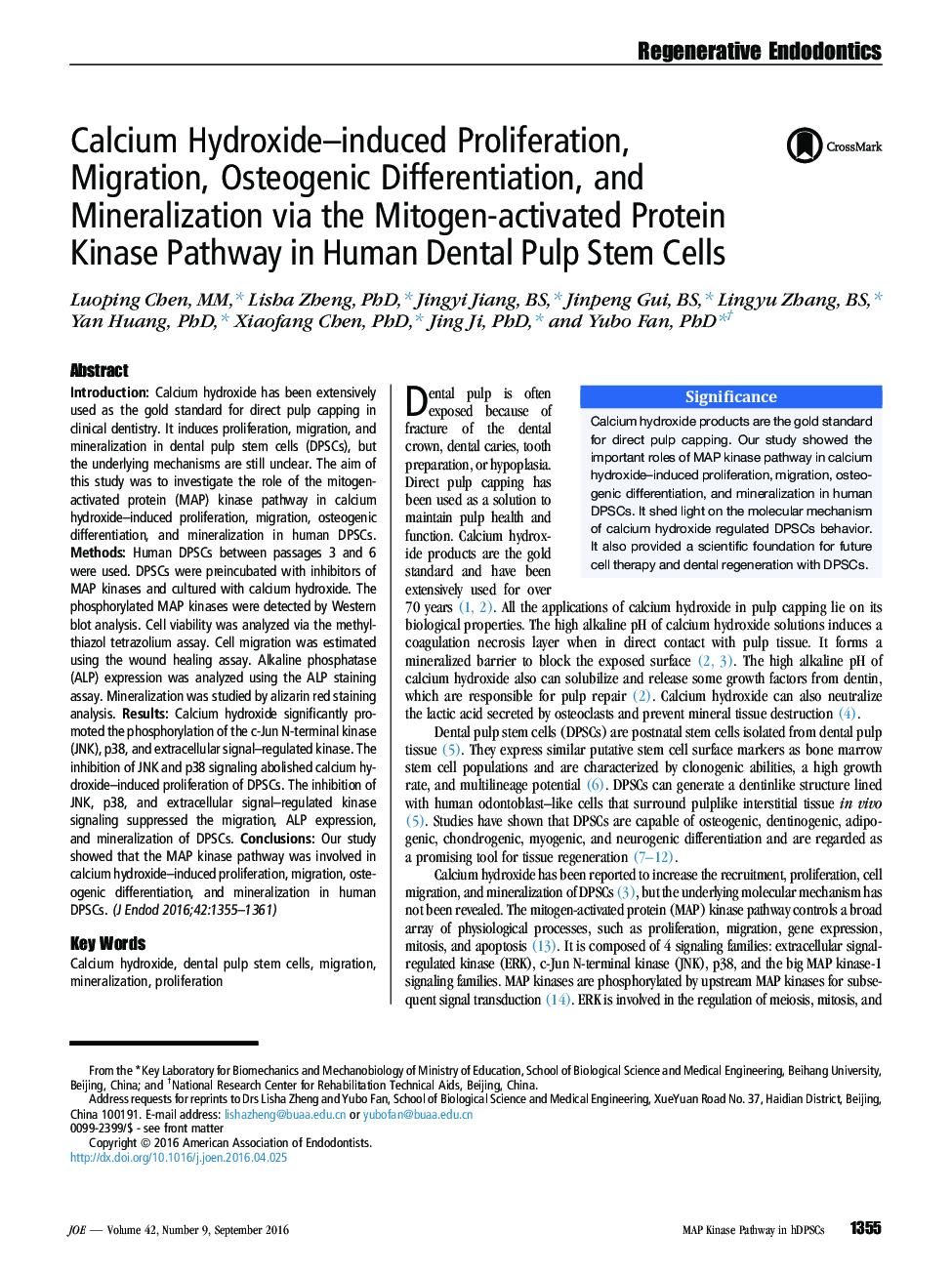| کد مقاله | کد نشریه | سال انتشار | مقاله انگلیسی | نسخه تمام متن |
|---|---|---|---|---|
| 3146707 | 1406841 | 2016 | 7 صفحه PDF | دانلود رایگان |

• Calcium hydroxide activated mitogen-activated protein kinases in human DPSCs.
• JNK and p38 are involved in calcium hydroxide–induced proliferation in DPSCs.
• JNK, p38, and ERK involved in calcium hydroxide–induced migration, alkaline phosphatase expression, and mineralization in DPSCs.
IntroductionCalcium hydroxide has been extensively used as the gold standard for direct pulp capping in clinical dentistry. It induces proliferation, migration, and mineralization in dental pulp stem cells (DPSCs), but the underlying mechanisms are still unclear. The aim of this study was to investigate the role of the mitogen-activated protein (MAP) kinase pathway in calcium hydroxide–induced proliferation, migration, osteogenic differentiation, and mineralization in human DPSCs.MethodsHuman DPSCs between passages 3 and 6 were used. DPSCs were preincubated with inhibitors of MAP kinases and cultured with calcium hydroxide. The phosphorylated MAP kinases were detected by Western blot analysis. Cell viability was analyzed via the methylthiazol tetrazolium assay. Cell migration was estimated using the wound healing assay. Alkaline phosphatase (ALP) expression was analyzed using the ALP staining assay. Mineralization was studied by alizarin red staining analysis.ResultsCalcium hydroxide significantly promoted the phosphorylation of the c-Jun N-terminal kinase (JNK), p38, and extracellular signal–regulated kinase. The inhibition of JNK and p38 signaling abolished calcium hydroxide–induced proliferation of DPSCs. The inhibition of JNK, p38, and extracellular signal–regulated kinase signaling suppressed the migration, ALP expression, and mineralization of DPSCs.ConclusionsOur study showed that the MAP kinase pathway was involved in calcium hydroxide–induced proliferation, migration, osteogenic differentiation, and mineralization in human DPSCs.
Journal: Journal of Endodontics - Volume 42, Issue 9, September 2016, Pages 1355–1361